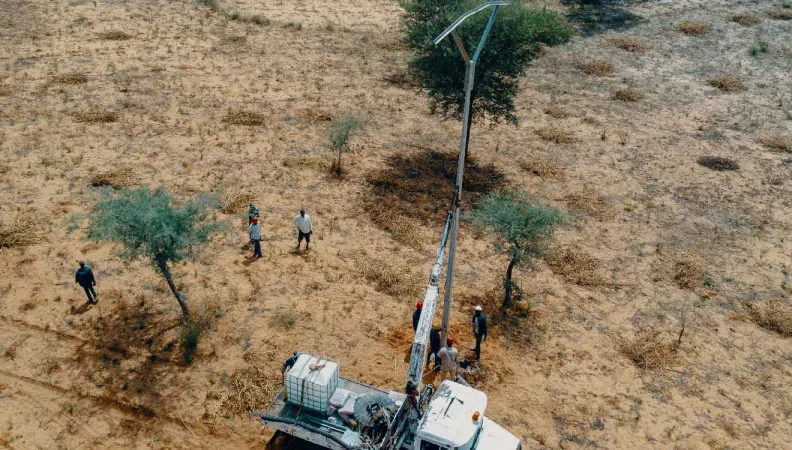Share the page
Improving access to electricity by extending power grids and electrifying rural areas
Project
This project is carried out with the support of the European Union



-
Project start date
-
Status
Ongoing
-
Project end date
-
-
Project duration
-
6 years
-
AFD financing amount
-
€ 41 000 000
-
Country and region
-
Location
-
Niger
-
Type of financing
-
Partners
-
Beneficiaries
-
Republic of Niger
This project is carried out with the support of the European Union

The content of this project information sheet falls under the sole responsibility of the AFD and does not necessarily reflect the opinions of the European Union.
Access to electricity is a political priority in Niger, with the objective of supplying 100 new towns a year. To achieve this objective, AFD is financing the extension of NIGELEC’s distribution grids. This project will thereby provide the local population with better living conditions.
Context
The energy sector in Niger is characterized by a low level of access to electricity and one of the lowest levels of per capita energy consumption in the world. The country’s energy mix is reliant on fossil fuels and substantial electricity imports from Nigeria.
In 2018, the rate of access to electricity for households was estimated at around 11%, with major disparities between urban and rural areas, the capital Niamey and the other urban centers. The access rate even falls to less than 1% in rural areas and varies between 20 and 40% in small towns, against 50% in Niamey. The energy deficit is therefore one of the main constraints to Niger’s growth. Improving access to reliable and high-quality electricity is a national priority.
Description
The project objective is to promote economic growth in Niger and reduce social inequalities in the country. It focuses on extending the electricity supply to 14 new neighborhoods in Niamey, 30 new capitals of rural municipalities and 88 new villages.
This project also makes it possible to stop the production of nine diesel power plants and contributes to improving the financial situation of NIGELEC, the local electricity operator.
More specifically, AFD’s role is to contribute to:
- The extension and reinforcement of medium and low-voltage distribution grids in Niamey
- The construction of connection lines for the towns of Gouré, Ouallam and Tchintabaraden to allow nine diesel power plants to be shut down
- The development of a Master Plan for distribution in Niamey
- The connection of 30 capitals of rural municipalities and 70 villages
- The installation of 61,300 connections, 2,185 km of low-voltage lines, 630 km of medium-voltage lines and 528 km of high-voltage lines.
Impacts
The project will provide access to electricity for some 315,000 people in Niamey and 114,100 people in the rural towns and improve their living conditions.


